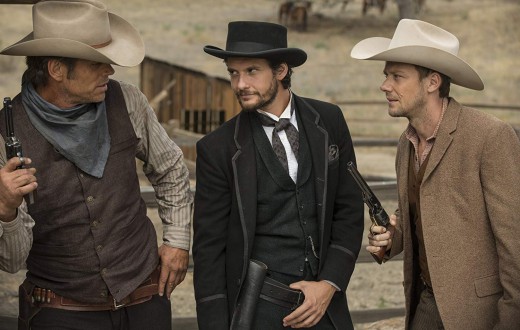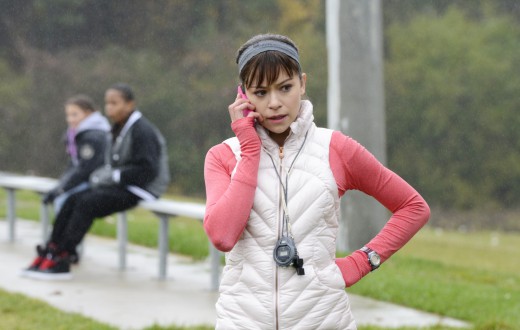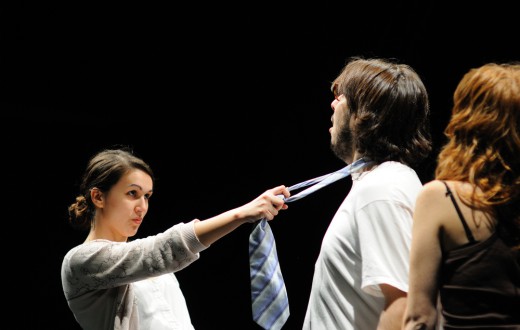We all love acting. And with good reason: performing can be a beautiful, moving, profound experience of connection with one’s fellow performers and an audience.
Of course, in order to get to the performance part of it, you usually have to go through an audition or two. For most actors, the audition is the bit where they get hung up.
But perhaps it’s time we demystify the audition, and more specifically the things we stress about when we audition. One key to a successful audition is to focus only on what you can control. At the same time, you must erase from your mind the stress associated with the things that are out of your control. Here are some ways to approach this.
Out of your control:
1. The wait
The first thing you encounter at an audition is the waiting room: a bunch of other actors and a harried receptionist/production assistant taking names and headshots. There’s nothing like a roomful of tense actors, laughing too loud, gossiping and often trying to psych each other out to throw you off your game. But here’s the thing: you know this is what it’s going to be like virtually every time you audition. You can’t do anything about it other than to mentally prepare yourself. If you need quiet in order to go over your sides, put on your headphones or find a quiet spot within earshot. But what you can’t do is let the stress of the waiting room or a long waiting time affect your performance.
2. The light and the room
Another factor well out of your control is the room you’re reading in. It will often not be the most flattering space–get over it. The people you’re reading for understand that you will look different when properly lit, and that you will sound different with a body mic or on a stage. Let go of all factors having to do with the space and just do your thing.
3. The reader
We’ve all read with someone who doesn’t give us much to work with. Again, the casting team is aware. Don’t let it throw you, as there’s nothing you can do. If you know the piece you’re reading, and you know your character’s objective, all you can do is try different tactics and react in the moment to what you’re given, even if it’s not what you expected. But stressing about, or worse, complaining about your reader is a no-no.
4. The casting team
Some younger actors come out of auditions freaking out over something that was said by a member of the casting team, or the fact that they didn’t seem to look up during their entire read. First of all, there’s nothing to be done about this, so stressing about it is pointless. Second, whispered asides among the casting team while you read may or may not mean anything–but you’ll never be privy to what was said, so why bother stressing? They may have been talking about how much they love you and want to have your babies. You’ll never know. And oftentimes the reason casting directors don’t look up while you read is because they’re looking at your headshot and resume, and thinking about ways they might fit you into the project, so let this one go.
5. Time
Mentioned above is how long you might have to wait before you read, and that is certainly one way you can’t control time. Another is how long you have your sides before your audition. Walking into the audition room tense and half-freaked out over the short time you’ve had to work on a piece instantly takes you out of the moment and prevents you from doing your best work. You can’t control this, so instead dive into the work itself as best you can. On the other hand…
What you can control:
1. Time
How many auditions have you been to where you were running late? You rush in the door out of breath and it seems like two seconds later they’re calling your name to read–before you’ve even had a chance to sit down. Sure, there was traffic, your alarm didn’t go off, there was a long line at Starbucks, etc. etc. Sorry, Sunshine, there are other actors there who overcame all of these difficulties and got there early. This is a subjective business where fractions of an inch can mean the difference between getting your dream job or not. You must, must, must be on time, which actually means early.
2. Preparation
It’s true, usually you only get a day or two to look at sides before an audition. But let’s be honest: for your last audition how much time did you spend the night before when you were supposedly “running lines” actually scrolling through your Instagram feed? Or flipping through your Netflix queue looking for a movie to watch after you were done? You have your own career in your hands; nobody is going to crack the whip and MAKE you work on your sides. But one thing is for sure: some other actor in that waiting room shut off their phone and television while they were preparing. Be the actor who spends the most time preparing–actually preparing–and it will pay off.
3. Attitude
We talked at the beginning of this piece about the difficulty of auditioning, and it’s true, it’s not the easiest thing in the world. On the other hand, neither is acting, is it? One other thing that is in your control–and perhaps the most important of all–is your attitude. Thoughts are literally nothing; they’re the electrochemical firing of neurons inside your skull, nothing more–that is, until they manifest in the real world. If you have a negative outlook on auditions, it manifests in your breathing, in your heart rate, and in your body language, all of which detract from you performing your best. You have to learn how to train your brain to look at an audition as an opportunity: it’s a chance to act that day, and really that’s all we want, isn’t it? You can’t control your feelings, but you can control your focus, and your focus directs the way your feelings go. You should be focused on the work, the objectives of your character, the joy of acting, and the fun you get to have this day and every day in playing someone else. It’s up to you to turn auditions into play, not work! You’ll feel a difference–and you’ll see a difference in how often you get cast, too, if you adopt this attitude every time.







